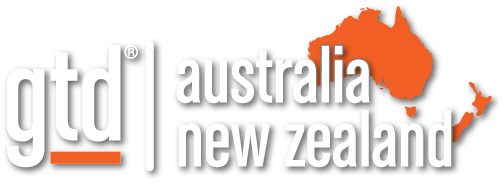When I first started reading Getting Things Done by David Allan, I was introduced to the idea of ‘trusting your system’. At the time I really had no idea what it meant, but it sounded important. Over the years of implementing and using GTD as my ‘operating system’ I progressively got more of an understanding of how valuable it is to have a trusting relationship with your system of managing and doing things. In fact, it’s not just important, it’s freeing.
Trust is not something we necessarily think a lot about. Few of us keep an updated list of the people we trust, but we very quickly know when someone breaks our trust. The same holds true for our systems and ways of doing things. We might not actively think about it, but knowing that you can rely on your system as a predictable way of achieving what’s meaningful to you, is the cornerstone of a healthy relationship.
When something is going smoothly, we rarely give it a second thought. But as soon as things change and we aren’t sure that we know what is going on, something feels off. If I can’t trust this one person, who can I trust? If I can’t trust my way of doing things, how do I be the person I want to be, for myself and those around me?
It happens to all of us, so the key is to work out how to recognise if the trust is there, and how to get it back when it’s not.
I can immediately tell when I stop trusting my system… the worried thoughts start! Worried that I’ve forgotten something important; did I make a commitment to someone?…. maybe a deadline?
I also start to have the same “I need to remember to..” conversation in my head – sometimes it goes on for days! It can be a very small thing so doesn’t ‘feel’ that important and its easy to dismiss. But if I need to remember that because I hadn’t put it in my system, what else is out there that I was supposed to remember? What else have I not handed over to a system I trust? If I’m not putting things in my system, it’s usually because I don’t trust that they’ll come back out of the system at the time I need to take action on them – i.e. I don’t trust that my system will work for me!
For me, building and maintaining trust in my system relies on two ongoing behaviours:
-
- Ensuring that my system includes EVERYTHING that I consider meaningful – I can make a decision later that it’s not meaningful to me, but if there is even a chance, my brain wants it captured. When I stop capturing everything and start keeping it in my head (or my bag, pocket, email or notebook), I board the worry train. Even a single idea, not captured, makes me wonder if there are other things I’m not capturing. What about that thing I was supposed to do the other day? Did I capture that? When I trust that I’ve captured everything, I’m free to keep thinking about new and important things.
- Ensuring that my system is up to date – Exactly how up to date can vary depending on how much stuff is going on, but I need to know there isn’t something hiding in the back corners just waiting to burst out in the form of a disappointed person or missed deadline. For me, that means setting aside time for reviewing and reflecting as often as it makes sense and at least weekly, in the form of a weekly review. When I miss the time I’ve set aside for reviewing each week, there may be perfectly valid reasons, but the effect is almost immediate. I start to make decisions based on urgency or what seems the most ‘fun’ at the time, all the while knowing there is probably something else I ’should’ be doing but I’m afraid to look. When I trust that I’m being reminded about the things I need to be reminded about, I can make good decisions about what to do with my time.
It’s important to remember that implementing GTD doesn’t mean you never get overwhelmed and out of control. It just means that when you do, you’ve got a way to get back in control quickly. Having a trusting relationship with your system takes an investment of time and discipline to get started, but pays immeasurable dividends in peace and focus.
Whether you practice Getting Things Done or not, how trusting is your relationship with your system?
Chris Macdonald helps people and organisations set up systems and processes to get meaningful things done. He’s perpetually curious about human nature and why we do what we do. Never one to turn down a challenge, Chris strives to change the world one small bit every day.



Recent Comments